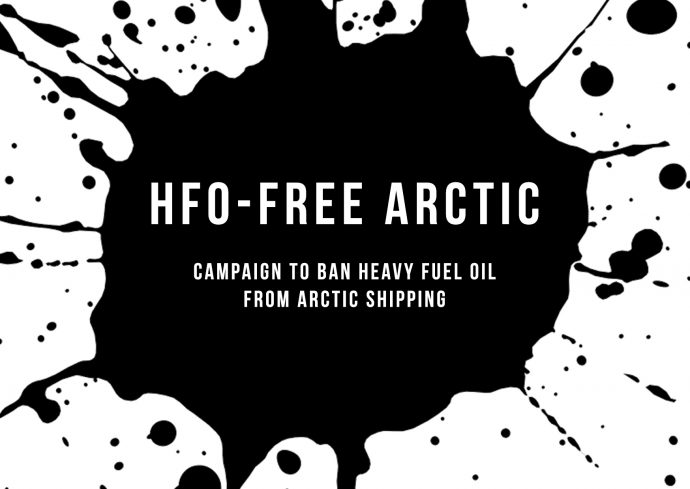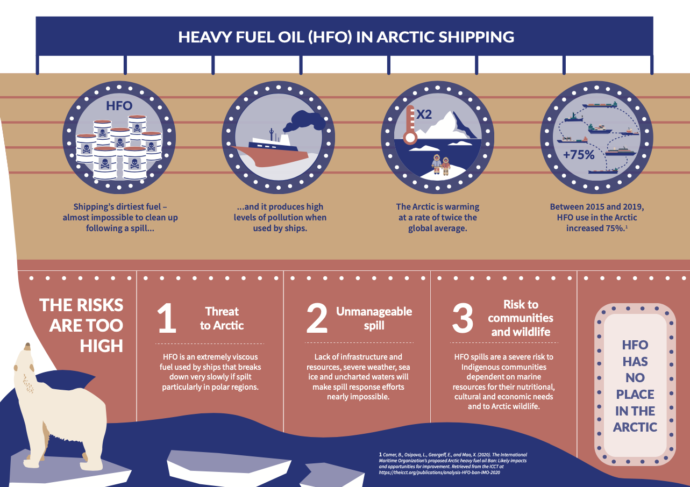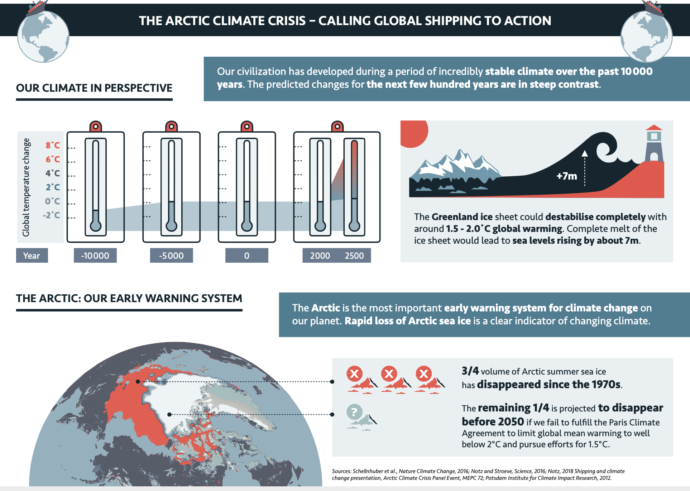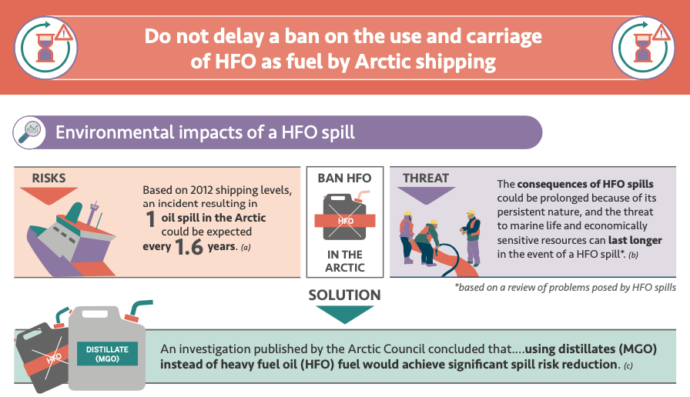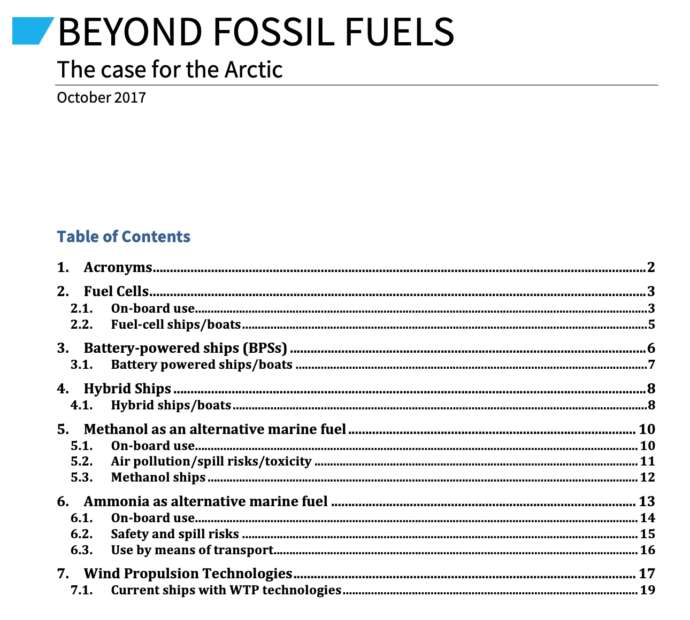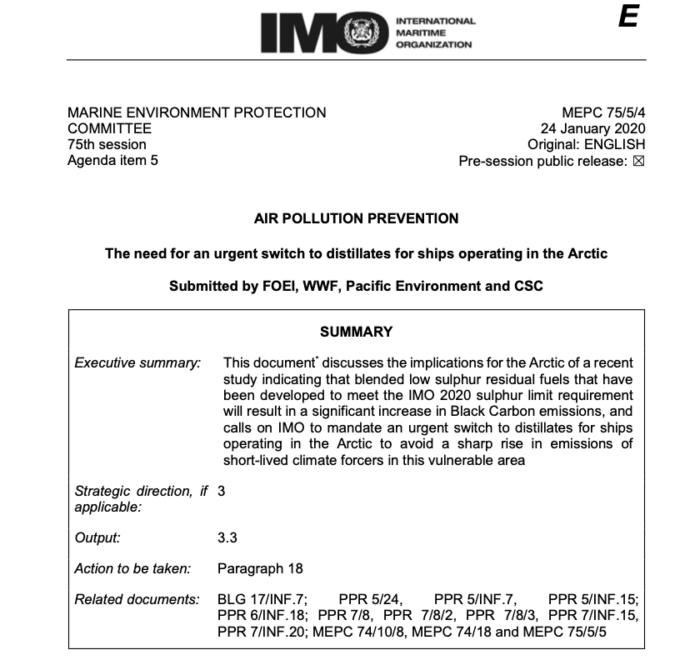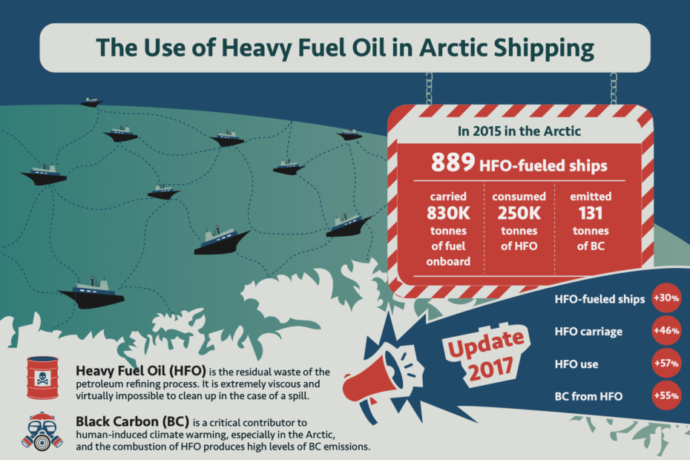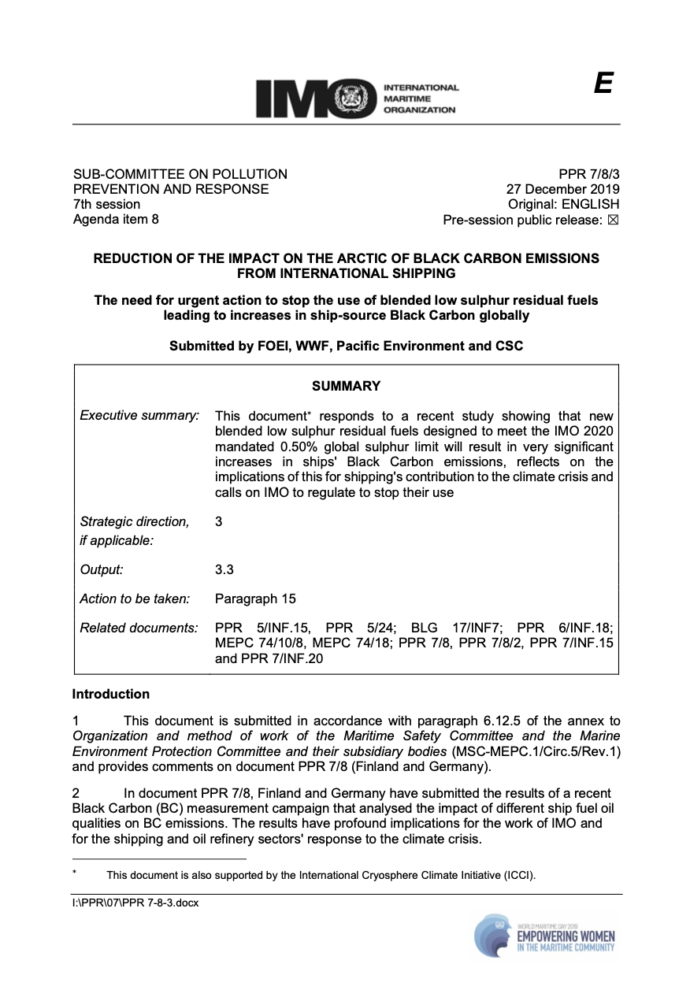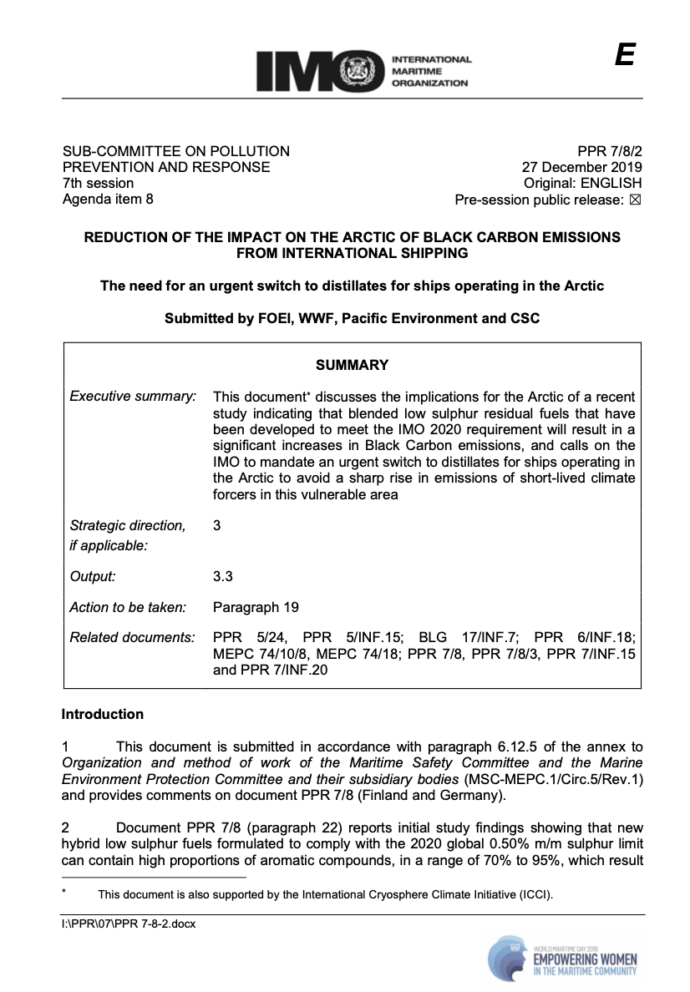Clean Arctic Alliance Manifesto for Russia’s Chairmanship of the Arctic Council October 2020
During the Russian Federation’s two-year Chairmanship of the Arctic Council, the Clean Arctic Alliance is calling on Russia to focus on sustainable use of the Arctic, with a special emphasis on new mitigation measures for Arctic shipping which will minimise emissions, reduce the risk of oil spills, and address noise pollution.

